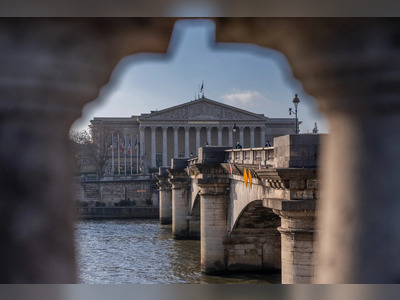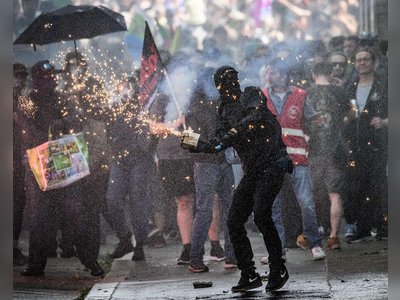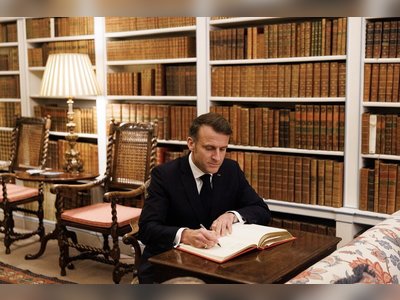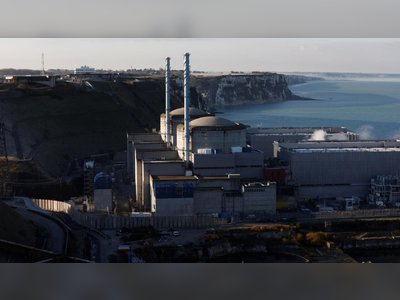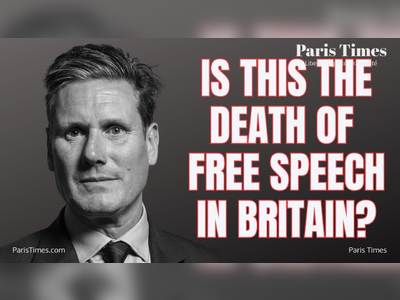French Billionaires Under Scrutiny for Political Influence in Right-Wing Movement
Lawmakers investigate funding efforts promoting far-right ideology amid concerns of democratic interference.
On May 20, a parliamentary inquiry committee in France convened with the intent of questioning billionaire Pierre-Edouard Sterin, founder of Smartbox, about his significant financial contributions to far-right initiatives.
However, Sterin failed to appear, stating he wished to testify via video link due to security concerns, prompting criticism from the committee's president, Thomas Cazenave.
Cazenave emphasized that adequate protection measures for Sterin had been arranged, characterizing his absence as a stalling tactic that prevents verification of compliance with French campaign financing laws.
The committee's investigation centers on Sterin's Pericles project, through which he has reportedly invested around €30 million ($34.24 million) to promote conservative values.
Arnaud Rerolle, who leads the Pericles project, had previously appeared before the committee and characterized the organization as a right-wing incubator for 'meta-political' projects.
Rerolle noted that Pericles had funded less than 15% of 600 submitted applications, with some initiatives known to support far-right publications and groups, including the magazine _L'Incorrect_ and the _Observatoire du decolonialisme_.
These entities typically criticize left-wing ideologies and social movements.
During the inquiry, Rerolle faced scrutiny for Pericles’ intentions regarding support for Marie Le Pen's National Rally (RN).
Lawmaker Pierre-Yves Cadalen from the far-left party France Unbowed (LFI) claimed that leaked documents indicated Pericles aimed to assist the RN in gaining control of 300 cities in the upcoming 2026 municipal elections.
While Rerolle confirmed the authenticity of the documents, he called them outdated, indicating that the organization planned to allocate €150 million over the next decade to combat perceived threats from Islamism, immigration, and gender ideologies, aiming for favorable outcomes in the 2027 presidential election.
Critics, including Cadalen, voiced concerns about the implications of billionaires like Sterin and Vincent Bollore, who controls a significant media conglomerate in France, influencing political landscapes.
Current ownership patterns indicate that 80% of general interest newspapers are held by 11 billionaires, with their broadcast outlets reaching over half of the national audience.
This concentration of media ownership has raised alarms about its potential to skew public discourse toward far-right narratives.
Abel Francois, a political economist, remarked on the evolving role of media ownership, observing a shift from previously influencing politics for corporate interests to fostering specific ideological agendas.
Academic observers noted the growing trend of self-censorship among journalists fearful of jeopardizing future employment opportunities within these powerful media networks.
Herve Joly, a historian, indicated that unlike some business leaders, who have historically avoided supporting far-right entities, Sterin and Bollore exemplify a newer model of entrepreneurial influence in politics.
As part of the ongoing discussions, lawmakers like Cadalen have advocated for stricter regulations on market concentration in media, fearing that unchecked billionaire involvement could undermine the democratic process.
Meanwhile, some coalition lawmakers, like Eleonore Caroit, argue for transparency as a means to combat such projects rather than implementing new legislative measures.
The ongoing inquiry seeks to illuminate the financial strategies employed by figures like Sterin while ensuring compliance with established campaign laws.
Should Sterin be found in violation, he could face penalties including two years in prison and fines up to €7,500.
However, Sterin failed to appear, stating he wished to testify via video link due to security concerns, prompting criticism from the committee's president, Thomas Cazenave.
Cazenave emphasized that adequate protection measures for Sterin had been arranged, characterizing his absence as a stalling tactic that prevents verification of compliance with French campaign financing laws.
The committee's investigation centers on Sterin's Pericles project, through which he has reportedly invested around €30 million ($34.24 million) to promote conservative values.
Arnaud Rerolle, who leads the Pericles project, had previously appeared before the committee and characterized the organization as a right-wing incubator for 'meta-political' projects.
Rerolle noted that Pericles had funded less than 15% of 600 submitted applications, with some initiatives known to support far-right publications and groups, including the magazine _L'Incorrect_ and the _Observatoire du decolonialisme_.
These entities typically criticize left-wing ideologies and social movements.
During the inquiry, Rerolle faced scrutiny for Pericles’ intentions regarding support for Marie Le Pen's National Rally (RN).
Lawmaker Pierre-Yves Cadalen from the far-left party France Unbowed (LFI) claimed that leaked documents indicated Pericles aimed to assist the RN in gaining control of 300 cities in the upcoming 2026 municipal elections.
While Rerolle confirmed the authenticity of the documents, he called them outdated, indicating that the organization planned to allocate €150 million over the next decade to combat perceived threats from Islamism, immigration, and gender ideologies, aiming for favorable outcomes in the 2027 presidential election.
Critics, including Cadalen, voiced concerns about the implications of billionaires like Sterin and Vincent Bollore, who controls a significant media conglomerate in France, influencing political landscapes.
Current ownership patterns indicate that 80% of general interest newspapers are held by 11 billionaires, with their broadcast outlets reaching over half of the national audience.
This concentration of media ownership has raised alarms about its potential to skew public discourse toward far-right narratives.
Abel Francois, a political economist, remarked on the evolving role of media ownership, observing a shift from previously influencing politics for corporate interests to fostering specific ideological agendas.
Academic observers noted the growing trend of self-censorship among journalists fearful of jeopardizing future employment opportunities within these powerful media networks.
Herve Joly, a historian, indicated that unlike some business leaders, who have historically avoided supporting far-right entities, Sterin and Bollore exemplify a newer model of entrepreneurial influence in politics.
As part of the ongoing discussions, lawmakers like Cadalen have advocated for stricter regulations on market concentration in media, fearing that unchecked billionaire involvement could undermine the democratic process.
Meanwhile, some coalition lawmakers, like Eleonore Caroit, argue for transparency as a means to combat such projects rather than implementing new legislative measures.
The ongoing inquiry seeks to illuminate the financial strategies employed by figures like Sterin while ensuring compliance with established campaign laws.
Should Sterin be found in violation, he could face penalties including two years in prison and fines up to €7,500.

